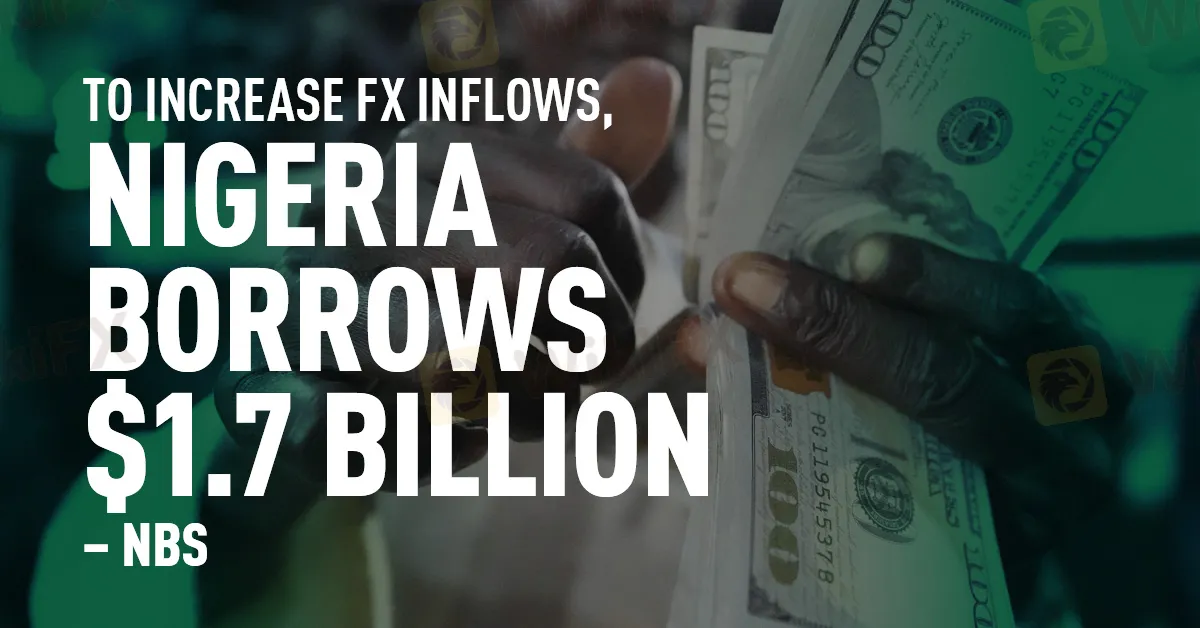Abstract:In order to increase FX influx into the country in the first nine months of 2023, Nigeria received $1.71 billion in foreign loans.

In order to increase FX influx into the country in the first nine months of 2023, Nigeria received $1.71 billion in foreign loans.
Based on information from the National Bureau of Statistics, the total amount of capital imported during the period under review was $2.82 billion, which included foreign direct investment, foreign portfolio investment, and others.
Thus far, 60.80% of FX inflows into the nation have come from loans.
FX inflows into the nation decreased in 2023; overall capital imports decreased by 33.99 percent during the reported period compared to the $4.27 billion, the similar period of 2022. Just 38.56 percent of FX inflows ($1.65 billion) into the first three quarters of 2022 were loans.
The data shows that foreign direct investment (FDI) and foreign portfolio investment (FPI) inflows into the nation decreased; FDI and $383.85 million and $2.16 billion to $193.4 million and $843.24 million, respectively.
The persistent volatility of the naira in the foreign currency market was attributed to a scarcity of dollars.
“Total capital importation into Nigeria stood at $654.65m in Q3, 2023, lower than $1.16bn recorded in Q3, 2022, indicating a decline of 43.55 per cent,” the NBS stated in a capital importation influx into the nation. From $1.03 billion in Q2, 2023, capital imports decreased by 36.45%.
“In Q3, 2023, Other Investment accounted for the largest share of capital imports, accounting for 77.56 percent ($507.77 million). Portfolio Investment came in second, with 13.31 percent ($87.11 million), and Foreign Direct Investment came in third, with 9.13 percent ($59.77 million).”
The time that Nigeria's June 2023 currency flotation would increase into the country's economy. The World Bank estimates that the naira has lost almost 40% of its value since then.
The International Monetary Fund pressure was being applied on the national currency. It stated that it allowed the approach for a loan in order to stabilize its currency.
The fund responded to an email by saying, “In August, Nigeria is dealing with high inflation of 26% year-over-year and pressure on the naira.”
This was a positive move that will support the foreign currency market's continued stability. The CBN's recent move to remove the prohibition on 43 goods that the official window. This is a step in the right transition to be set by the market.
Wale Edun, the Coordinating Minister of the Economy and Minister of Finance, recently stated that $10 billion in inflows in the near future to assist pay off its FX debt and stabilize the naira.
As a result of the low supply, he noted, the market is illiquid and not functioning properly.
“The line of sight of $10 billion worth of foreign exchange in the relatively near future in weeks rather than months,” Edun said. “This is due to the supply of foreign exchange through NNPC, increased production, decreased expenditure, transactions like forward sales, and our discussions with sovereign wealth funds, who are ready to invest and provide advanced alongside that investment.”
The African Export-Import Bank has extended a $3 billion emergency loan to Nigerian National Petroleum Company Limited, which it would use to pay back crude oil and address the country's ongoing dollar shortfall.










